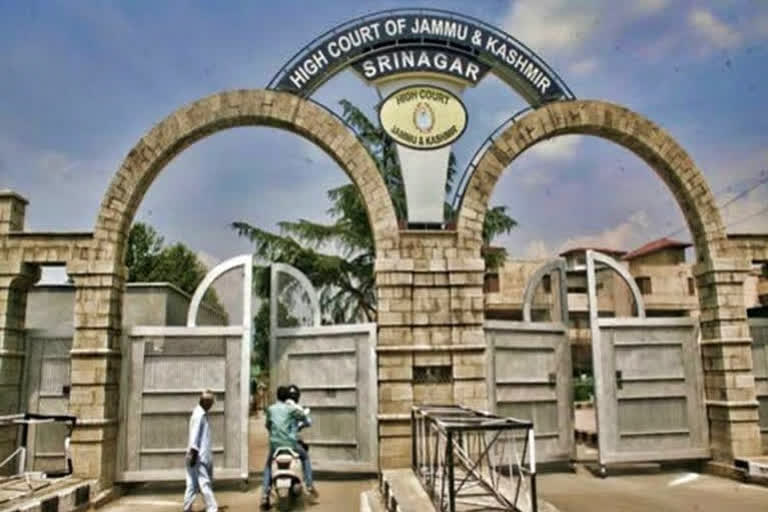Srinagar: The Union Territory (UT) administration has filed an affidavit in the Jammu and Kashmir High Court seeking a modification to its judgment scrapping the ‘Roshni Act’, claiming that the order may adversely affect a large number of the common population “unintentionally”. The UT administration has also submitted that a distinction must be made between the common people and the influential people who have benefited from the Act.
On October 9, the Jammu and Kashmir High Court declared the Jammu and Kashmir State Land (Vesting of Ownership to the Occupants) Act, 2001, commonly known as the ‘Roshni Act’, passed by Dr Farooq Abdullah’s government in 2001, “unconstitutional, contrary to law and unsustainable”. Under the Roshni Act, encroachments on state land had to be regularised or legally transferred to the occupants against payment at market rates. The Act had set 1990 as the cut-off year for encroachment but later state governments under the Peoples Democratic Party and the Congress extended the cut-off date to 2007. The main idea behind the scheme was to raise Rs 25,000 crore for building infrastructure for electricity or 'Roshni' in the erstwhile state of Jammu and Kashmir.
Following the Court's verdict, the administration in October scrapped all land transfers under the controversial Act and started publishing ‘Roshni’ and ‘non-Roshni’ lists of beneficiaries.
The administration had submitted before the Court that a total of 6,04,602 kanals (75,575 acres) of state land had been regularised and transferred to the occupants. This included 5,71,210 kanals (71,401 acres) in Jammu and 33,392 kanals (4,174 acres) in the Kashmir region.
Meanwhile, a source in the administration told ETV Bharat that a majority of regularised land was in Jammu, the feedback from the region regarding the scrapping of the Act was not positive but worrying.
"The economically weaker sections are with an opinion that the scrapping of the Act will affect them adversely and they will face collateral damages. This was worrying. The idea was to only hold those influential responsible for their wrongdoings,” the source said.
The government, in the affidavit, said there was a need to distinguish between people who were either “landless cultivators” or “householder with at the most one dwelling house in personal use” on the one hand, and “rich land grabbers” on the other.
"We would like to bring to the kind notice of the hon’ble court the fact that a large number of common people would suffer unintentionally. This includes landless cultivators and individuals who are themselves residing in dwellings on small areas. They are unfortunately clubbed along with the rich and wealthy land grabbers who have obtained a title over state land through the provisions now struck Act," the affidavit, filed through the special secretary, revenue on Friday, read.
"We pray to the hon'ble court that the government may be permitted, on a future date, to come up with an appropriate mechanism to enable this class of landless cultivators and single dwelling owners to continue to remain in possession of the land, subject to an appropriate ceiling and on payment at an appropriate rate," it further said.
It, however, added that there shall be no relief for “encroachers above these ceilings or those who have built commercial properties on government land”.
The J&K administration has also raised apprehensions over the investigations launched by the CBI, stating that it might have not been the intention of the J&K High Court to investigate thousands of government employees who implemented the Act without any malafide intentions.
It claimed that the inquiries should only focus on encroachment of government land by fraudulent means. “It is further submitted to allow the CBI to focus on the influential and powerful people who defrauded the state,” the government’s affidavit added.
Also read: LG Manoj Sinha inaugurates KPDCL e-Customer Care Centre



